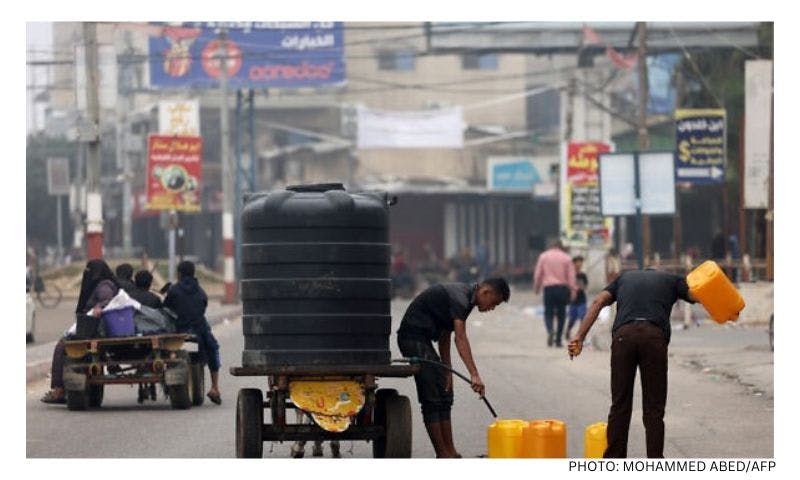Published: 29 March 2018
Last updated: 4 March 2024
This week Gen 17’s initial findings have been released by research leads David Graham and Andrew Markus. The findings make for compelling reading. Some of the results won’t surprise readers – they reflect trends first established in Gen08 (Gen17’s predecessor). But several results will give cause for reflection.
The intermarriage rate has risen rapidly. Jewish day schools have become prohibitively expensive, particularly in Melbourne. Poverty and financial hardship are no longer isolated, minority issues. Migrants who have arrived in recent decades have had trouble finding work, earning an income and struggled to connect with the wider Jewish community.
The picture that emerges is of Australian Jewish communities increasingly fragmented along social, religious and income lines.
The rise of intermarriage
One of the starkest results is that of intermarriage. While this trend has been gradually increasing in Australia over the past 40 years, Gen17 finds that the rate has doubled in the last 20 (the rate is now at 33%).
For every three weddings occurring since 2010 that involved at least one Jewish person, two were marriages between Jews and one was a marriage between a Jew and a non‐Jew. Plenty of Jews (23%) are also living in couples with a non‐Jewish partner.
Intermarriage presents a challenge to Jewish continuity. Graham and Markus point out that by almost all attitudinal measures, intermarried Jews exhibit weaker levels of Jewish identification and Jewish behaviour than their in‐married counterparts.
They are less likely to be ‘Belonging to the Jewish community’ (64% in‐married versus 29% intermarried), ‘Sharing festivals with your family’ (71% in‐married Vs 41% intermarried) or ‘Supporting Israel financially’ (30% in‐married Vs 11% intermarried).
It’s an issue Australian Jews are acutely aware of 63% of respondents say they are concerned about intermarriage in Australia.
The cost of education
Jewish day school experience has been an important driver of Jewish identity in Australia for more than half a century. It is financially inaccessible for many Jewish families.
Almost one in three (32%) of respondents who considered sending their child to a Jewish Day School said cost had prevented them from doing so. Of those who do send their child or children to a Jewish school, more than half (55%) said it entailed significant or major financial sacrifice. The ‘high cost of fees’ is now far and beyond the first main disadvantage of sending children to Jewish day schools. Only a few small number of respondents (13%) find the fees are within the household’s financial capacity.
Tellingly, the cost of education is now identified as the most important aspect of Jewish communal life that needs to change; when Gen17 respondents were asked if there were any aspects of Jewish communal life that needed to be improved 43% of respondents said ‘increase Jewish day school fee assistance’.
The socio-economic picture and the migrant experience
Relative to the general Australian population Jews have above average levels of educational qualifications and above average incomes, but Gen17 provides compelling evidence that not all Jews enjoy material security.
Almost one in five (19%) say they were ‘Just getting along’ and 3% say they were ‘Nearly poor’ or ‘Poor’. A total of six per cent reported that they had personally reduced their meal size and/or gone without prescription medicine in the previous 12 months because they could not afford it.
One group was by far the most likely to report material deprivation: the Strictly Orthodox/Haredi (14%) who were more than double the average.
Gen17 survey also provides unprecedented insight into the experience of recent migrants (those that have arrived since 1980). The data confirms what has been known anecdotally for years that Jewish from the former Soviet Union (FSU) and Israel have experienced difficulties integrating into Australia and the wider Jewish community.
Both have experienced difficulties with the English language, finding suitable employment, making friends in the community. Of most concern, 24% of FSU respondents and 21% of Israeli respondents have experienced discrimination from the Jewish community.
Time for action
Gen17 has produced a remarkable set of insights. It has also unearthed some serious challenges for Jewish communal organisations, many of which cannot be easily resolved.
How to help alleviate the financial pressures faced (particularly by the Strictly Orthodox community)? How to remove financial barriers to Jewish day school? How to turn back the tide on Jewish intermarriage? And how to better integrate new migrants into the community? These are just some of the big questions to have emerged from Gen17.
Jewish communal organisations would be wise to consider solutions that are innovative and draw on best practice established by other Jewish diasporas (many of whom have been confronting the same problems for years). For too long Jewish communal leadership in Australia has lacked the evidence base to understand the challenges its constituents face. The data is now there, it’s just a matter of using it.
Photo: Times of Israel




